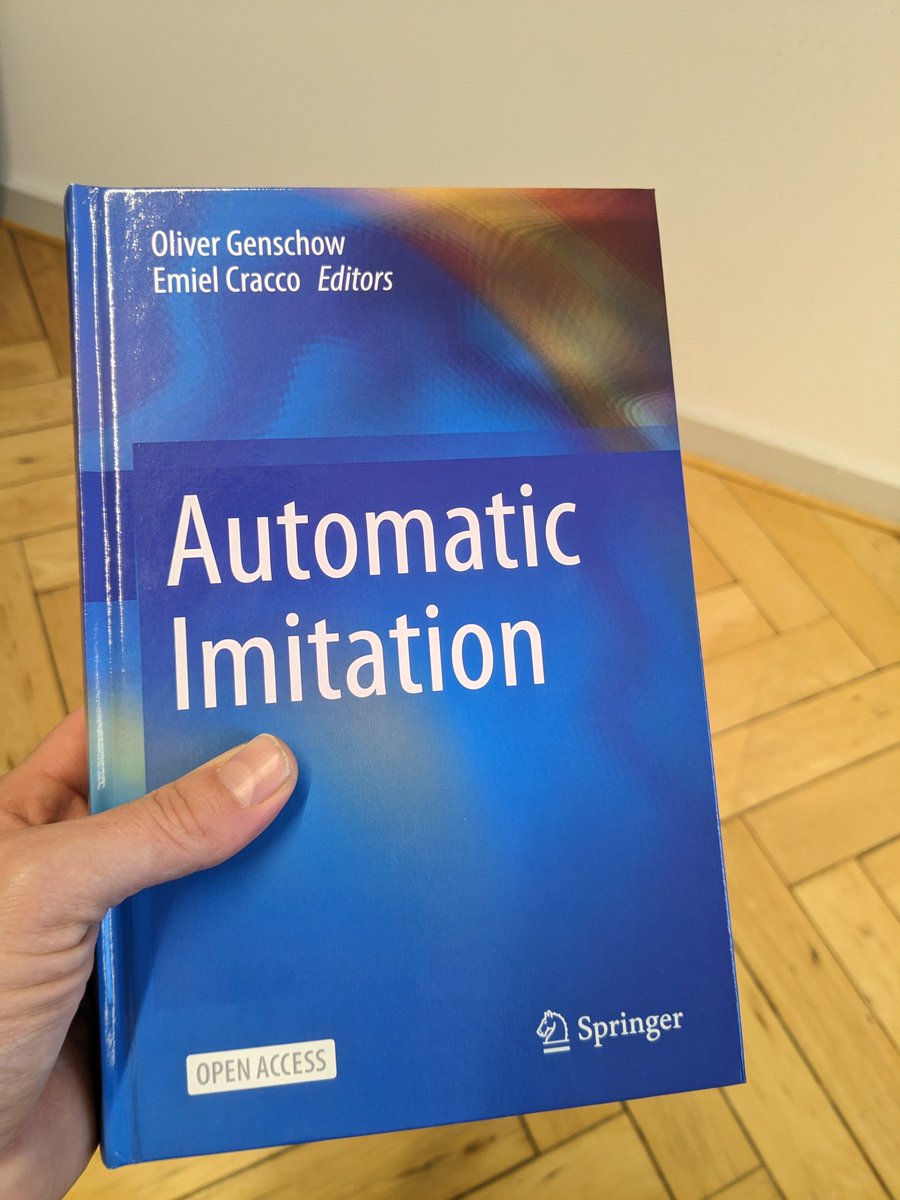
Oliver Genschow
@OGenschow
Followers
558
Following
765
Media
36
Statuses
414
Psychological Scientist @leuphana; I study person perception, imitation, mimicry, and free will beliefs; Editor @InMindMagazin | https://t.co/tT8v8IdWS9 #scicom
Joined July 2019
Are you passionate about how individuals and societies transform? Join the Psychology of Transformation PhD program @leuphana University Lüneburg (Germany) and explore psychological questions about change and sustainability, and human development. 👉
0
2
4
RT @ESCoP_news: Postdoctoral Research Position #2, Ghent University, Belgium. The successful candidate will train recurrent neural networks….
0
9
0
Are you passionate about #scicomm & psychology in the context of #Sustainability? We are looking for a PhD-candidate (75%; 4 yrs) for the Hub Science project "Psychology of Transformation" @leuphana University Lüneburg!
1
3
2
RT @TheReplicateNet: GUEST BLOG at TRN ("Replication Research Symposium and Journal") A major new initiative in replication research is lau….
0
3
0
RT @SpringerPsych: Looking for new #OpenAccess books in #Psychology? AUTOMATIC IMITATION, edited by @OGenschow and @CraccoEmiel is now avai….
0
5
0
Finally, the hard copy version of the book on automatic imitation, @CraccoEmiel and I edited, has arrived. We're glad the book is also available as open access via the following link:
0
1
6
RT @eegmanylabs: 🚨Exciting news! We now have the first-ever complete #EEGManyLabs replication. This large-scale multi-site study revisits a….
0
32
0
On the following @OSFramework page, we provide tutorials, codes, and analysis scripts to make the implementation of the online version of the imitation-inhibition task as easy as possible:
1
0
1
Mareike Westfal recently developed and validated an online version of the imitation-inhibition task. This allows even researcher with few programming experiences to assess imitative behavior online. Together with @JanCrusius @CraccoEmiel .
1
5
7
@_lindseypowell and Piotr Winkielman take a third-person perspective on imitation and review literature on the inferences people draw from observing others imitating each other.
0
0
3
@salazarkaempf and Cornelia Exner summarize existing studies on mimicry and akin phenomena in psychotherapy and related contexts (like counseling).
1
1
3
From live interactions to controlled methods in the lab and from virtual reality to observation studies: @PaulaWicher, @PsychFarmer, and @antoniahamilton discuss various approaches to studying the consequences of being imitated.
1
3
5
@BEAM_Manchester and @AutismAtMCR review investigations of automatic imitation in clinical populations. IFor many of the conditions reviewed, there are relatively small numbers of published studies that often include relatively small participant numbers.
1
0
5
In our chapter, @CraccoEmieland I review evidence in favor and against social modulation of imitative behavior by explaining why some, but not other factors influence imitation.
1
0
3
@CraccoEmiel summarizes recent research on automatic imitation of multiple agents. This research indicates that imitation is simultaneously informed by the different agents in our surrounding.
1
0
2

